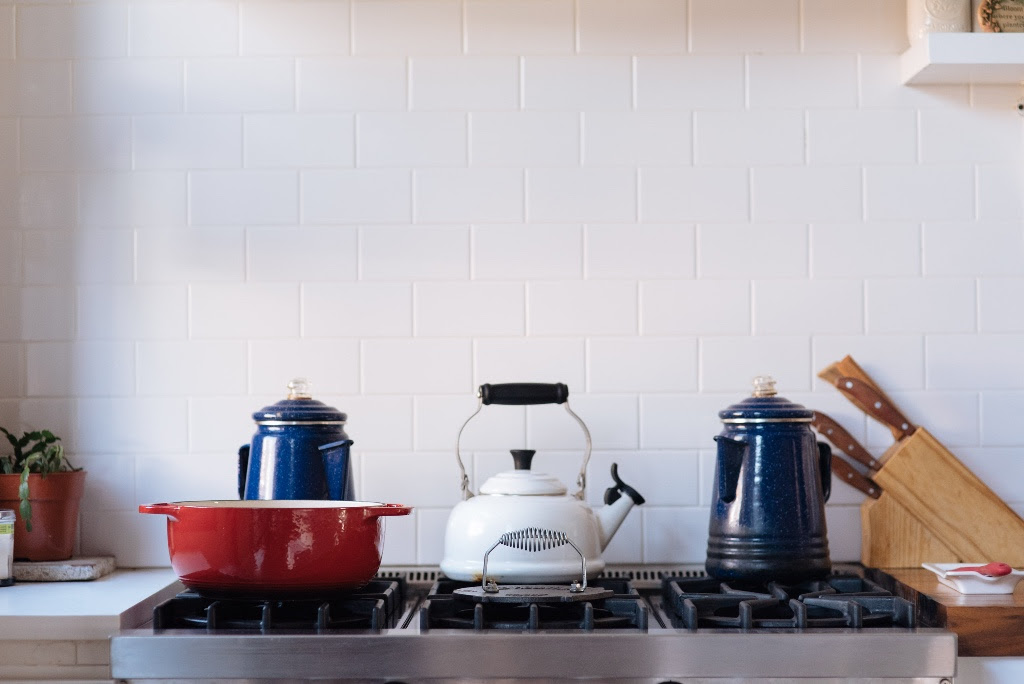My Real Beef with Minimalism: I Can't Really Afford It
image courtesy of Mopho.to
I few weeks ago, I watched the documentary on Netflix called Minimalism. I held off on watching it for a while because I've felt ambivalent about the minimalist lifestyle trend for a few years now.
That might be strange to people since I am a personal organizer and people embracing minimalism would make my job easier and perhaps obsolete. I'm ok with both of options, which I realize the latter is an unusual standpoint to have on one's job, but more on that later.
What bothers me about minimalism? I didn't know for a long time, though I thought about it often, turning the idea over and over in my head. Wondering why it simply never sat right with me.
I've written about lifestyle minimalism here, here and here, but in previous posts I've just dealt with it in an affable, informative way.
Then a random conspiring of posts on Twitter yesterday helped dislodge the cause of my discomfort with minimalism.
I saw this Reductress Post:
Reductress, in case you didn't know is:
"The first and only satirical women’s magazine, Reductress was founded in 2013 by Beth Newell and Sarah Pappalardo. The mission of Reductress is to take on the outdated perspectives and condescending tone of popular women’s media, through the eyes of the funniest women in comedy today. Also, we want people to think we’re pretty." (from Reductress.com)
I had a blog post on Minimalism from 2013, just when Reductress was founded, going something like this:
Minimalist Lifestyle Trend
The popular Minimalists, Becker and Nicodemus, were on NPR a few years ago. I was loading the dishwasher while listening and towards the end of their talk they agreed to take listener calls. The calls were, without exception, from women asking about how to clear out the clutter in kids rooms.
The allure of capsule wardrobes, Japanese organizers and other modern notions seems irresistible in a culture that has a billion dollar storage industry. We have a real appetite for buying things and now a matching appetite for storing.
I have watched the growing movement of minimalism ( aka downsizing, down shifting, simplicity, simple living) throughout the world. In architecture, design, futuristic movies and idealized in thousands of photographs on shelter sites.
The pull, for me, is strong. I love it but I do not think it is the answer for many. In fact minimalism has a following largely in the upper percentage of earners, such that it seems only the wealthy can truly achieve it.
It is difficult to achieve because our society is set up to be grand consumers but we have also inherited a rightful guilt about throwing things away from our parents and grandparents.
Then during my writing group last Wednesday, I read a draft from my book, Tame Space, on Minimalism and the the Simple Living Movement (you'd be right to think they were the same, but they are only similar, for reasons explained in my book). One writing pal said she agreed, that living minimalist seemed to have an elite quality to it that many who struggle with paying rent could probably not appreciate. Another writing pal said they didn't think it was elitist but that it pointed to a need for an individual to find a set point for themselves, and that for some the set point was minimalist and others maximalist. I agreed with both ideas, though more strongly that it feels elitist but didn't know how to explain it in the moment.
Then I happened to stumble upon Kristin Wong's post on the movie Minimalism on Netflix and this from her site:
While I relate to minimalism on an aesthetic level (and even on a Buddhist level to some extent), something about the trend toward minimalism is unsettling. It seems problematic, at least in the current state of our economy, to push the virtue of minimalism in terms of wealth. Despite being overshadowed by more pressing headlines, income inequality hasn’t gotten any better. The average income of the top 10% of Americans is upwards of $200k and the top 1% earn over six million a year. But the vast majority–90% of people–make an average of $33,000 a year.
And there it is. $33,000 a year for the majority of people. I had a quiet aha moment. Sometimes, living with less isn't a clarion call to the good life. Sometimes, it's just less stuff because we have less money.
Can you imagine for a moment, living paycheck to paycheck for most of your life and worrying about paying for new shoes for your kid and living on a daily diet of painkillers because you can't afford to see the dentist because your car needs repairs asap - imagine that and hearing about two single guys who were making six figure salaries and walking away from it because they realized they'd rather be fiction writers and live with less stuff?
image courtesy of Mopho.to
If you can't imagine, read Linda Turado's Hand to Mouth. She wrote an essay on Gawker on being poor and a defense of some of the things that poor folks find they are judged for in the media and in politics. The essay was so popular Penguin asked her to write a book. It reminded me a bit of Nickel and Dimed by Barbara Ehrenreich (Hand to Mouth by Paul Auster is also good too but labeled fiction) both should be required reading for everyone but definitely for the upper crust who would then tout minimalism less as a great achievement and more as the antidote to their particular kind of moneyed malaise.
In Linda Turado's world, I'd be pretty bitter for a moment about the Minimalist trend (can I have the houseful of nice stuff that you just gave away?) before I had to get back to worrying about how to get new shoes for my kid. Of course, I don't dislike the Minimalists, I'm happy for anyone courageous enough to walk away from financial security to find true bliss and to make a living sharing their method. I like many of their posts on simple living and letting go of things, like this and this. I reserve my bitterness for many other things life has presented. Like aging, or the current political climate, or people who don't pick up their dog's poop. Bitterness is the contrasting flavor to my sweet optimism that doing what I love - helping people - will someday pay off. Pay off enough to cover basic needs and save for retirement, of course. It currently doesn't.
I do find their repeated message of minimalism as THE answer to be grating as I struggle to live in NYC. It's expensive to live here, but I can't think of leaving, I love it here. I'm proud of my work here. My husband can make his living only here as a publicist for theater and dance. But I know financially I wouldn't cut it in NYC with two kids if something happened to my partner. He's got the health insurance benefits and a living wage.
I, too, am living the dream of pursuing meaningful work. But if I decide to live minimalist and get rid of excess to barest extreme, I may not have the old macbook that I could upgrade if my current laptop broke or was stolen. I live mostly by my work principles - don't keep what you don't use - but sometimes you have to, you want to, because you are afraid of not being able to buy another. I am afraid to be minimalist because I live largely hand to mouth.
image courtesy of mopho.to
In case it doesn't seem apparent, the seeming luxury of my career choice was driven by sheer necessity: big time gap in my resume meant I could not find work in marketing after 8 years of staying at home with the kids. Also, marketing changed immensely from 2003 to 2013. I no longer had a professional network to help onramp into the working world. Frustrated and clinically depressed, I founded Tame Space in late 2011 after realizing I needed to instantly create a business that spoke to my best skills (organizing and working with people one on one), gave me a flexible schedule to spend time with my kids and allowed me some creative outlet (this blog).
I share the gist of my personal financial situation because that's the reason I've never been able to jump on the Minimalism bandwagon. My finances are too minimalist to play fast and loose with the idea of having very little in my home. If I ever have the luxury, like some of my clients, to unload bags of designer clothes to my housekeeper and design my own minimalist apartment in Brooklyn and have loads of money socked away for retirement and the kids' college tuition, maybe I could stand to let go of everything. Or maybe not, since the feeling of scarcity is sometimes a specter that lives only in your mind and disregards how much money you actually have in your bank account.
I think of my parents and many of my clients and how the feeling of scarcity (whether it's true or not in their situation) is enough to trigger holding tendencies. I say holding because they are not hoarding and forgetting about things in the dark corners of a Collyer brothers home, but are waiting for some feared future time when they may need this extra set of shoes or the old laptop or those glass mason jars or the french yogurt maker.
I hope that one day I can feel unfettered by fear of not being able to buy something I once had and discarded. Until then, I can only see lifestyle minimalism as a delightful path to fulfilled living for the segment of the population who could easily replace anything they once thought they could live without.
In a perfect world, a person considering Minimalism might give their entire household of things to a family who had just left temporary homeless shelter and needed good quality household items and clothes. And hopefully, they'd never need to look back.










